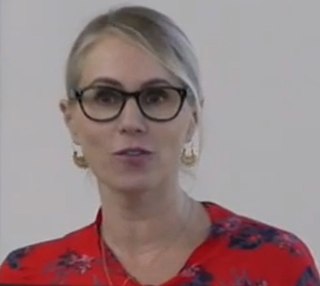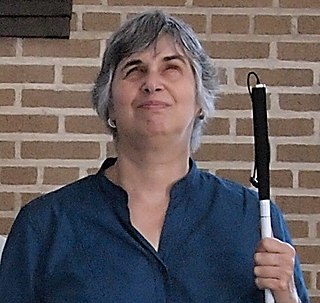Bioethics is both a field of study and professional practice, interested in ethical issues related to health, including those emerging from advances in biology, medicine, and technologies. It proposes the discussion about moral discernment in society and it is often related to medical policy and practice, but also to broader questions as environment, well-being and public health. Bioethics is concerned with the ethical questions that arise in the relationships among life sciences, biotechnology, medicine, politics, law, theology and philosophy. It includes the study of values relating to primary care, other branches of medicine, ethical education in science, animal, and environmental ethics, and public health.
Utilitarian bioethics refers to the branch of bioethics that incorporates principles of utilitarianism to directing practices and resources where they will have the most usefulness and highest likelihood to produce happiness, in regards to medicine, health, and medical or biological research.

Arthur L. Caplan is an American ethicist and professor of bioethics at New York University Grossman School of Medicine.

The Hastings Center is an independent, nonpartisan bioethics research institute and think tank based in Garrison, New York.
George J. Annas is the William Fairfield Warren Distinguished Professor and Director of the Center for Health Law, Ethics & Human Rights at the Boston University School of Public Health, School of Medicine, and School of Law.
Ruth R. Faden is an American scientist, academic, and founder of the Johns Hopkins Berman Institute of Bioethics. She was the Berman Institute's Director from 1995 until 2016, and the inaugural Andreas C. Dracopoulos Director from 2014 to 2016. Faden is the inaugural Philip Franklin Wagley Professor of Biomedical Ethics.

Daniel Isaac Wikler is an American public health educator, philosopher, and medical ethicist. He is currently the Mary B. Saltonstall Professor of Population Ethics and Professor of Ethics and Population Health in the Department of Global Health and Population of the Harvard T.H. Chan School of Public Health in Boston. He is Director and a core faculty member in the Harvard Program in Ethics and Health (PEH). His current research interests are ethical issues in population and international health, including the allocation of health resources, health research involving human subjects, organ transplant ethics, and ethical dilemmas arising in public health practice, and he teaches several courses each year. He is a fellow of the Hastings Center, an independent bioethics research institution.

Daniel John Callahan was an American philosopher who played a leading role in developing the field of biomedical ethics as co-founder of The Hastings Center, the world's first bioethics research institute. He served as the Director of The Hastings Center from 1969 to 1983, president from 1984 to 1996, and president emeritus from 1996 to 2019. He was the author or editor of 47 books.
Willard Marvin Gaylin was an American bioethicist and physician who served as clinical professor of psychiatry at Columbia College of Physicians and Surgeons. He was also the co-founder, along with Daniel Callahan, of The Hastings Center, an independent research institute focused on bioethics. Gaylin served as president of the Hastings Center from its inception, in 1969, until 1993 and as chairman of the board from 1993 to 1994. He was a member of the Center's board.
Michael Alan Grodin is Professor of Health Law, Bioethics, and Human Rights at the Boston University School of Public Health, where he has received the distinguished Faculty Career Award for Research and Scholarship, and 20 teaching awards, including the "Norman A. Scotch Award for Excellence in Teaching." He is also Professor of Family Medicine and Psychiatry at the Boston University School of Medicine. In addition, Dr. Grodin is the Director of the Project on Medicine and the Holocaust at the Elie Wiesel Center for Judaic Studies, and a member of the faculty of the Division of Religious and Theological Studies. He has been on the faculty at Boston University for 35 years. He completed his B.S. degree at the Massachusetts Institute of Technology, his M.D. degree from the Albert Einstein College of Medicine, and his postdoctoral and fellowship training at UCLA and Harvard University.
Robert Klitzman is an American psychiatrist and bioethicist.

I. Glenn Cohen is a Canadian legal scholar and professor at Harvard Law School. He is also the director of Harvard Law School's Petrie-Flom Center for Health Law Policy, Biotechnology, and Bioethics.
Jamie Lindemann Nelson is a philosophy professor and bioethicist currently teaching at Michigan State University. Nelson earned her doctorate in philosophy at the State University of New York at Buffalo in 1980 and taught at the University of Tennessee at Knoxville and St. John's University before moving to Michigan State University. In addition, Nelson was an Associate for Ethical Studies at The Hastings Center from 1990–95 and is both a Woodrow Wilson Visiting Fellow and a Fellow of the Hastings Center. Nelson usually teaches courses on biomedical ethics, ethical theory, moral psychology, feminist theory, and philosophy of language.

Katrina Alicia Karkazis is an American anthropologist and bioethicist. She is a professor of Sexuality, Women's and Gender Studies at Amherst College. She was previously the Carol Zicklin Endowed Chair in the Honors Academy at Brooklyn College, City University of New York and a senior research fellow with the Global Health Justice Partnership at Yale University. She has written widely on testosterone, intersex issues, sex verification in sports, treatment practices, policy and lived experiences, and the interface between medicine and society. In 2016, she was jointly awarded a Guggenheim Fellowship with Rebecca Jordan-Young.

Adrienne Asch was a bioethics scholar and the founding director of the Center for Ethics at Yeshiva University in New York City. She was also the Edward and Robin Milstein Professor of Bioethics at the Wurzweiler School of Social Work and Professor of Epidemiology and Population Health at Albert Einstein College of Medicine, which are both graduate professional schools at Yeshiva University. She also held professorships in epidemiology and population health and in family and social medicine at Yeshiva's Albert Einstein College of Medicine.

Françoise Elvina BaylisFISC is a Canadian bioethicist whose work is at the intersection of applied ethics, health policy, and practice. The focus of her research is on issues of women's health and assisted reproductive technologies, but her research and publication record also extend to such topics as research involving humans, gene editing, novel genetic technologies, public health, the role of bioethics consultants, and neuroethics. Baylis' interest in the impact of bioethics on health and public policy as well as her commitment to citizen engagement]and participatory democracy sees her engage with print, radio, television, and other online publications.

Intersex people are born with natural variations in physical and sex characteristics including those of the chromosomes, gonads, sex hormones, or genitals that, according to the UN Office of the High Commissioner for Human Rights, "do not fit the typical definitions for male or female bodies". Such variations may involve genital ambiguity, and combinations of chromosomal genotype and sexual phenotype other than XY-male and XX-female. Preimplantation genetic diagnosis allows the elimination of embryos and fetuses with intersex traits and thus has an impact on discrimination against intersex people.
Eric M. Meslin PhD is a Canadian-American philosopher-bioethicist and current President and CEO of the Council of Canadian Academies (CCA).

Vardit Ravitsky Israeli-Canadian is a bioethicist, researcher, and author. She is president and CEO of The Hastings Center, a full professor at the University of Montreal, and a senior lecturer on Global Health and Social Medicine at Harvard Medical School. She is immediate-past president and current vice-president of the International Association of Bioethics, and the director of Ethics and Health at the Center for Research on Ethics. She is a Fellow of the Pierre Elliott Trudeau Foundation, where she chaired the COVID-19 Impact Committee. She is also Fellow of The Hastings Center and of the Canadian Academy of Health Sciences.
Rebecca S. Dresser is an American legal scholar and medical ethicist.









